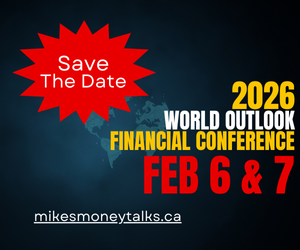Asset protection
Despite the fact that the American economy is going strong, with high GDP growth and the lowest level of employment in 40 years, a survey from Bankrate.com shows that nearly 40 percent of Americans believe the next recession is already here or awaits us in the next 12 months. So, why do experts says the economy is good, if not excellent, when the Average Joe has an entirely different sentiment?
Indeed, the BankRate survey noted that 88 percent of “experts” say the economy is “good,” and 11 percent even describe it as “excellent. The disconnect between the two groups is difficult to understand at a time when the U.S. economy has achieved its longest growth record without recession. In fact, we’re looking at a 10-year growth spurt. In other words, 121 months of straight growth….CLICK for complete article

China’s state-run media giant Xinhua is reporting that the world’s second-largest economy will soon be deregulating and restructuring key sectors of its industry, including oil exploration and mining, in order to facilitate greater foreign investment in China.
“In its new ‘special management measures’ addressing foreign investment,” reports by United Press International, Beijing’s reform commission said the number of foreign investment-related restrictions will decrease from 48 to 40 items. For foreign investment into free trade “experimental” zones, China has decreased the number of restrictions from 45 to 37 items, according to Xinhua.” These bans and restrictions will be fully lifted by the end of this year….CLICK for complete article

Fans of the improvisational comedy program Whose Line Is It Anyway? may recall host Drew Carey describing it as “the show where everything’s made up and the points don’t matter.”
Interestingly, if we replace “show” with “economic doctrine,” and “points” with “money,” we end up with a near-accurate description of modern monetary theory (MMT).
You may have noticed MMT trending in the news in the past few months, thanks in large part to the fact that it’s supported by a number of far-left socialist politicians such as Bernie Sanders and Alexandria Ocasio-Cortez (AOC).
I’m bringing it up now because the first round of Democratic presidential debates were held last week, and if you happened to tune in, you were likely treated to some policy proposals that seem to fall into the MMT camp, even if the term was never uttered. Think “Medicare for all,” free college tuition and the wholesale cancellation of $1.6 trillion in student loan debt. Then there’s the Green New Deal, which AOC recently admitted could cost upwards of $10 trillion….CLICK for complete article

Just a week after Nike appeared to bow to Chinese authorities’ demands, halting the sale of a range of sports shoes in China after its Japanese designer showed support for Hong Kong protests in an Instagram post; the sportswear company has been implicitly banned from Arizona after nixing the launch of its “Betsy Ross Flag” sneakers after former football player Colin Kaepernick complained.
As The Wall Street Journal reports, the sneaker giant created the Air Max 1 USA in celebration of the July Fourth holiday, and it was slated to go on sale this week.
The heel of the shoe featured a U.S. flag with 13 white stars in a circle, a design created during the American Revolution and commonly referred to as the Betsy Ross flag.
After shipping the shoes to retailers, Nike asked for them to be returned without explaining why, the people said. The shoes aren’t available on Nike’s own apps and websites.
“Nike has chosen not to release the Air Max 1 Quick Strike Fourth of July as it featured the old version of the American flag,” a Nike spokeswoman said.
After images of the shoe were posted online, Mr. Kaepernick, a Nike endorser, reached out to company officials saying that he and others felt the Betsy Ross flag is an offensive symbol because of its connection to an era of slavery, the people said.
Some users on social media responded to posts about the shoe with similar concerns. Mr. Kaepernick declined to comment…..CLICK for complete article

Not even the wealthiest, most successful investors are immune from trading blunders. Some of the most famous fund managers and investing gurus have dropped the ball and mistimed their buys and sells.
Here’s a look at six times top investors probably thought, “Whoops!”
1. Ackman And Valeant
Pershing Square Capital’s Bill Ackman has had a roller-coaster of success and failures in recent years. Perhaps no failure has been as highly publicized as his stake in Valeant Pharmaceuticals, which is now Bausch Health Companies Inc BHC 0.3%.
Ackman reportedly first took his massive stake in Valeant back in 2015 at an average price of around $196 per share. He then defended the company as the share price tanked over the next two years before finally unloading his position in March 2017 at a price of around $11 per share. Ackman reportedly took a $3-billion loss on Valeant.
2. Einhorn’s Miss
Geenlight Capital value investor David Einhorn disclosed a 27.1-million-share stake in solar power company SunEdison in January 2016 when the stock was trading at around $2.70. By the time Einhorn dumped 75% of his SunEdison stake in early 2016, the stock was trading at 32 cents pending a bankruptcy filing and delisting from the NYSE…..CLICK for complete article












